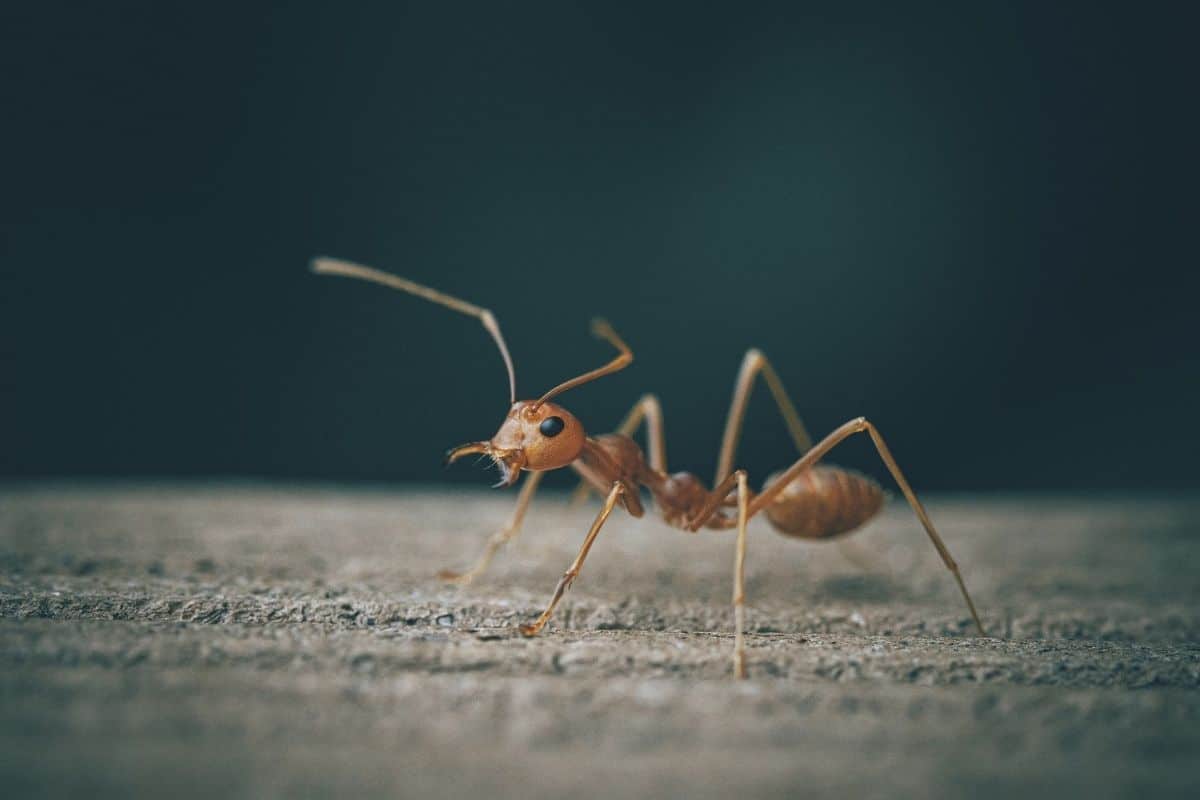
After just 30 minutes of training, ants – thanks to their excellent sense of smell – are already able to distinguish cancer cells from healthy cells.
That can be read in the magazine iScience† The researchers base their conclusions on experiments with grey-black rennet (Formica fusca†
Short workout
First, the researchers taught the ants to associate the ‘smell’ of cancer cells (see box below) with a reward (a sugar solution). That training went without a hitch; within 30 minutes the ants were able to distinguish between the smell of cancer cells and the smell of healthy cells. That certainly surprised the researchers, says researcher Baptiste Piqueret Scientias.nl† “Ants belonging to this species can learn extremely quickly. But judging by the results of previous studies using animals to detect cancer, we would have expected that they would take a little longer to learn to associate cancer cells with sugar.”
Experiment
But that turned out not to be the case. And so researchers were soon able to move on to the actual experiment, which aimed to find out whether ants — with that sugar solution-motivated, learned preference for cancer cells — would actually be able to distinguish between healthy cells and cancer cells.
“Once the training was done, we placed the ants in an area with no reward present to test their memory,” explains Piqueret. “On one side of the room was the smell of cancer cells and on the other side we placed the smell of healthy cells. The ants could move freely in this space. And we calculated how much time they spent with each scent. Having learned to associate the cancer cells with a reward, the ants spent more time investigating the cancer cell scent than investigating the other scent — hoping to find sugar to eat from the cancer cell scent .”
Cancer cells therefore have a characteristic ‘odor’ that is created by a unique mix of so-called Volatile Organic Compounds (VOCs). “A cell is actually a small factory that consumes nutrients and emits substances. These nutrients and emissions have an organic origin and are small enough to evaporate at room temperature, which is why they are also called Volatile Organic Compounds. Cancer cells are diseased cells with an altered metabolism. And therefore – compared to healthy cells – they produce a different and unique pattern of VOCs.”
Ants vs Dogs
This is not the first time that researchers have used animals to detect cancer cells based on their unique mix of VOCs. For example, previous studies have shown that dogs are able to detect cancer cells. “The canine nose is very suitable for medical diagnoses and dogs are used to detect cancer-specific VOCs,” says Piqueret. “But training dogs is expensive and time-consuming. In particular, the conditioning phase can take months and hundreds of trials are needed before a dog is operational.” And that prompted Piqueret and colleagues to look further. It brought them to the dwarf runner ants, which have previously been shown to have an excellent sense of smell and to learn quickly. Experiments now show that they even beat the dog on several points. “Insects can be trained quickly, have an impressive sense of smell and can be easily reared at low cost.”
Follow-up research
However promising the experiments with the dwarf antlers are; it may take some time before ants are actually used to diagnose cancer. For example, the researchers – who worked with two forms of breast cancer in their experiments – want to find out whether ants can also learn to detect other forms of cancer. In addition, it will be necessary to find out whether ants – which were now presented with the VOCs produced by the cancer cells on a silver platter – are just as capable of detecting these cancer-related VOCs as they are part of the body odor. “We plan to use bodily fluids – such as sweat, urine or saliva – to detect cancer-related VOCs,” explains Piqueret. “Because the cancer cells produce these VOCs, but eventually they also end up in the blood and then also in the body fluids.”
Although Piqueret and colleagues’ research focused on cancer cells, the scientists see many more possibilities for the inquisitive ants. They could perhaps also be used to detect other diseases (such as malaria or diabetes).
Source material:
†Ants detect cancer cells through volatile organic compounds” – iScience
Interview with Baptiste Piqueret
Image at the top of this article: Henryphoto (via Pixabay†